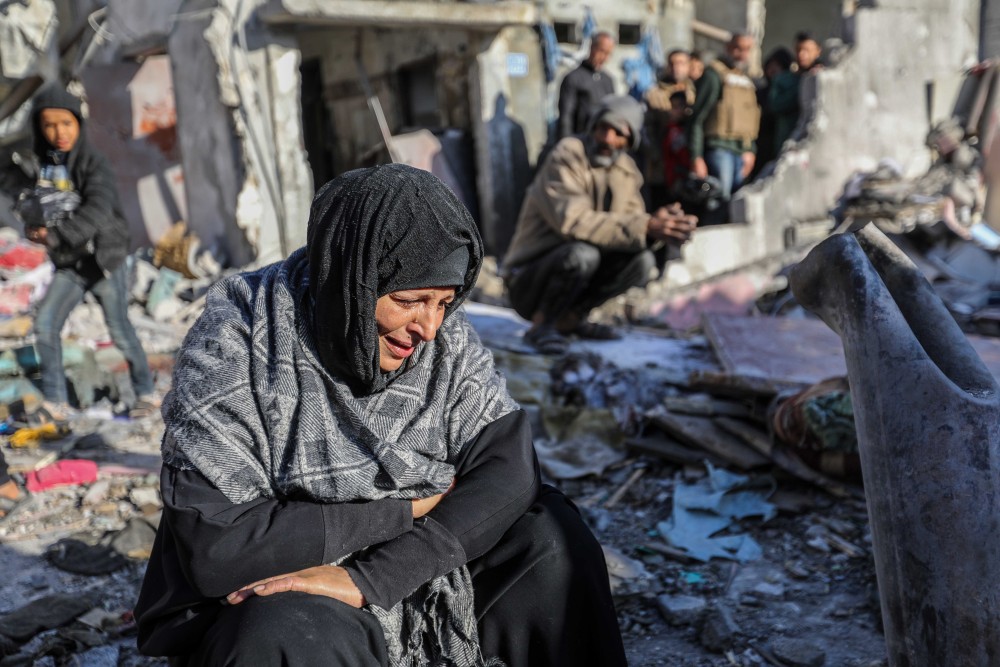
By Cindy Wooden
VATICAN CITY (CNS) — Pope Francis said the international community should investigate whether Israel’s military actions in Gaza constitute genocide.
“According to some experts, what is happening in Gaza has the characteristics of genocide. It should be investigated carefully to determine whether it fits into the technical definition formulated by jurists and international bodies,” he said in a new book.
An excerpt from the book, “Hope Never Disappoints: Pilgrims Toward a Better World,” written with the journalist Hernán Reyes Alcaide, was published Nov. 17 by Vatican News, the Italian newspaper La Stampa and the Spanish newspaper El País.
Yaron Sideman, the Israeli ambassador to the Holy See, posted on X a few hours later: “There was a genocidal massacre on 7 October 2023 of Israeli citizens, and since then, Israel has exercised its right of self-defense against attempts from seven different fronts to kill its citizens.”
“Any attempt to call it by any other name is singling out the Jewish State,” Sideman posted.
The pope made the comment in the context of speaking about global migration and the wars, economic hardships and climate disasters that force people to flee their homelands.
He praised Jordan and Lebanon for welcoming “millions of people fleeing the conflicts in the area — I am thinking especially of those leaving Gaza in the midst of the famine that has affected our Palestinian brothers and sisters because of the difficulty of getting food and aid into their territory.”
The U.N. Convention on the Prevention and Punishment of the Crime of Genocide defines genocide as any act “committed with intent to destroy, in whole or in part, a national, ethnical, racial or religious group.”
Formal recognition of genocide by a nation or by the U.N. International Court of Justice requires signatories to the convention to act to prevent further acts of genocide and to punish those responsible.
South Africa, on Dec. 29, 2023, filed an accusation of genocide against Israel with the International Court of Justice. Eight other nations have filed formal supporting complaints.
While not calling on Israel to withdraw from Gaza and halt all operations there, the court instructed Israel to exercise more control over its military to prevent acts which could be seen as contributing to genocide and to ensure humanitarian aid could reach Gaza.
In a report Sept. 20 to the U.N. General Assembly, the body’s Special Committee to Investigate Israeli Practices Affecting the Human Rights of the Palestinian People and Other Arabs of the Occupied Territories said it had “serious concerns of breaches of international humanitarian and human rights laws in the Occupied Palestinian Territory, including starvation as a weapon of war, the possibility of genocide in Gaza and an apartheid system in the West Bank, including East Jerusalem.”
After South Africa filed its case with the international court, Israeli Prime Minister Benjamin Netanyahu insisted his country had a right to defend itself against Hamas after its Oct. 7, 2023, attack and said, “the mere claim that Israel is committing genocide against Palestinians is not only false, it’s outrageous.”
